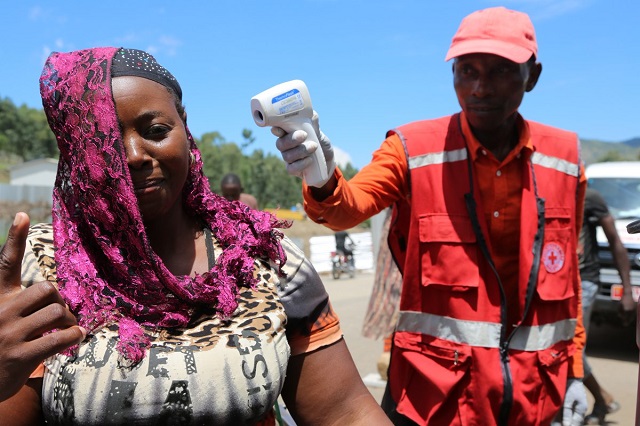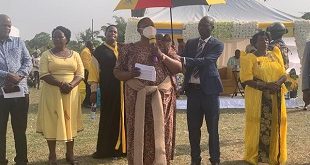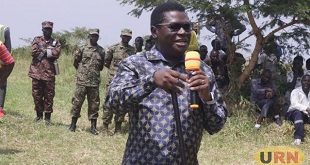
Kampala, Uganda | THE INDEPENDENT | Health Ministers from nine countries that border the Democratic Republic of Congo have endorsed a joint framework to strengthen cross-border collaboration on preparedness and response to Ebola virus and other disease outbreaks.
The ministers observed that the countries shared a threat that the outbreak poses to health and economic security in the sub-region and other parts of Africa and needed to develop an action plan to mitigate the effects of the threats.
Almost 3,250 people have been infected by the Ebola outbreak in north-eastern DRC, and more than 2,150 have died, since the outbreak began in August 2018. The experts however observed that even after more than a year, there is an increasing potential for the virus to spread into the neighbouring countries.
Ugandan Health Minister Jane Ruth Aceng says that the framework will formally offer guidelines on how to collaborate on interventions to tackle Ebola and spell out responsibilities of each country in dealing with similar outbreaks that could have a spillover potential.
Aceng was giving an update on the key issues discussed during a meeting of ministers, senior health and immigration officials and partners in Goma, the capital of North Kivu one of the Ebola-hit provinces of DRC on Monday.
The ministerial meeting, which was co-organized by the government of the DRC, WHO and the African Union Commission was attended by representatives from Angola, Burundi, Central African Republic, Republic of the Congo, DRC, Rwanda, South Sudan, Uganda, Tanzania and Zambia.
The countries agreed to strengthen mechanisms for the exchange of timely and accurate information on Ebola preparedness and response and other health security risks. They noted that withholding or falsifying information and data on Ebola violates the International Health Regulations and threatens peace, security and prosperity of the continent.
They also endorsed the establishment of a coordination task force on Ebola Virus Disease and other disease outbreaks, which will be hosted in the African Union Commission headquarters in Addis Ababa. Aceng says that the task force will provide political oversight such that decisions at the time of an outbreak are made quickly and are well coordinated to avoid wastage of resources.
Previously, Uganda has faced challenges regarding cross border collaboration with the Ebola outbreak as all the interventions that were happening in Uganda were not trickling down to the other side of the border in Congo.
For instance, at a meeting held in Kampala recently, Uganda district coordinators expressed discontent that while screening was going on at almost all border points on the Uganda side, some of the points the other side went unmanned.
However, to formalize the collaborations between the two countries, Uganda in October 2018 sought a Memorandum of Understanding with the DRC, so that the two countries could come clear on what the responsibilities of each would be.
But, despite a year of pushing for its signing, this has not happened and the minister says she re-echoed in the Goma meeting.
During the same meeting, Dr Matshidiso Moeti, the World Health Organization Regional Director for Africa, emphasized that cross-border collaboration will particularly enhance information sharing on disease outbreaks and emergencies in line with the legally binding International Health Regulations.
******
URN
 The Independent Uganda: You get the Truth we Pay the Price
The Independent Uganda: You get the Truth we Pay the Price


